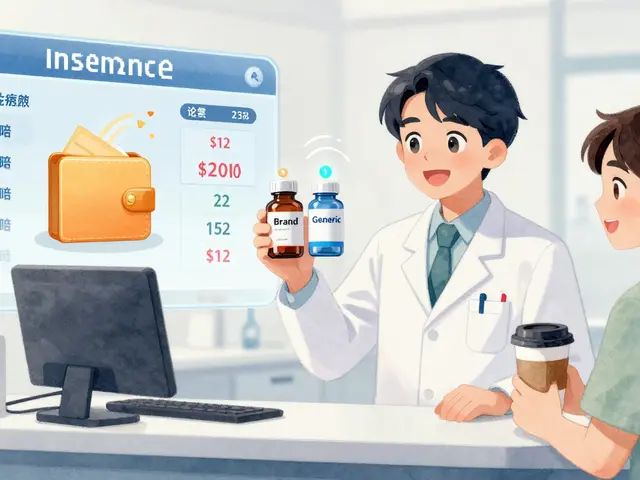Multiple Sclerosis — Practical info, treatments, and what to check next
Getting diagnosed with multiple sclerosis (MS) throws a lot at you at once: strange symptoms, scans, and tough treatment choices. If you're here, you probably want plain answers and real next steps — not medical jargon. This page points you to useful reads on this site and gives quick, practical tips you can act on today.
Symptoms, monitoring, and when to contact a doctor
MS symptoms vary a lot: numbness or tingling, vision changes, weakness, balance problems, or sudden fatigue that ruins your day. Track new or worsening symptoms in a simple notebook or phone note with date, what happened, and how long it lasted. Bring that to appointments — it makes MRI and exam results easier to interpret.
Call your neurologist if you have new vision loss, weakness that stops you walking, fever with new symptoms (risk of infection), or signs of severe side effects from meds. For routine changes, a message through your clinic portal is usually fine.
Treatments, meds, costs, and lifestyle steps
Treatment goals are: reduce relapses, limit new damage on MRI, and keep you functioning. Disease-modifying therapies (DMTs) are the main option, and choices depend on how active the disease is and your health profile. Some patients use older immunosuppressants like azathioprine — our article "Azathioprine Cost, Insurance, and Financial Aid: What Patients Need to Know in 2025" explains real-world price ranges and tips to lower out-of-pocket costs. If medication costs worry you, read that first and bring its points to your insurance or pharmacy conversation.
Supplements come up a lot. Many people check vitamin D levels and correct low levels, because it’s one of the few things clinicians regularly test. Our "Inosine" article explains what that compound is and why some consider it for neurological support — but don’t start supplements without asking your neurologist, especially if you’re on DMTs.
Stress matters. Stress and hormones can change how you feel and can make symptoms worse short-term. Read "How Stress and Cortisol Influence Cancer Growth and Tumor Spread" for practical stress-management tips you can adapt for MS: breathing exercises, short daily walks, and small sleep improvements often help symptoms and recovery after relapses.
Practical daily tips: pace yourself (break tasks into 15–20 minute chunks), stay hydrated, use cooling options if heat worsens symptoms, and keep a current med list on your phone. If mobility changes, ask about physical therapy early — it helps preserve function.
On this site, check the linked articles for deeper info on drug costs, supplements, and coping strategies. If you need to reach out, use the Contact Us page — we list ways to get support and more resources. Keep questions for your neurologist clear and specific, and bring notes from the articles you read here to those visits.
You don’t have to handle this alone. Use facts, track what happens to you, and lean on trusted resources and your care team when making decisions.

The Benefits of Atorvastatin for Patients with Multiple Sclerosis
As a patient with Multiple Sclerosis, I've recently discovered the benefits of Atorvastatin, which has been a game-changer for me. This cholesterol-lowering drug has been shown to reduce inflammation and promote nerve repair in MS patients. I've experienced fewer relapses and improved overall health since starting this medication. It's amazing to know that Atorvastatin can help slow down the progression of this unpredictable disease. I'm grateful for this small but mighty tool in my MS journey, and I'm eager to spread the word to help others find relief as well.




